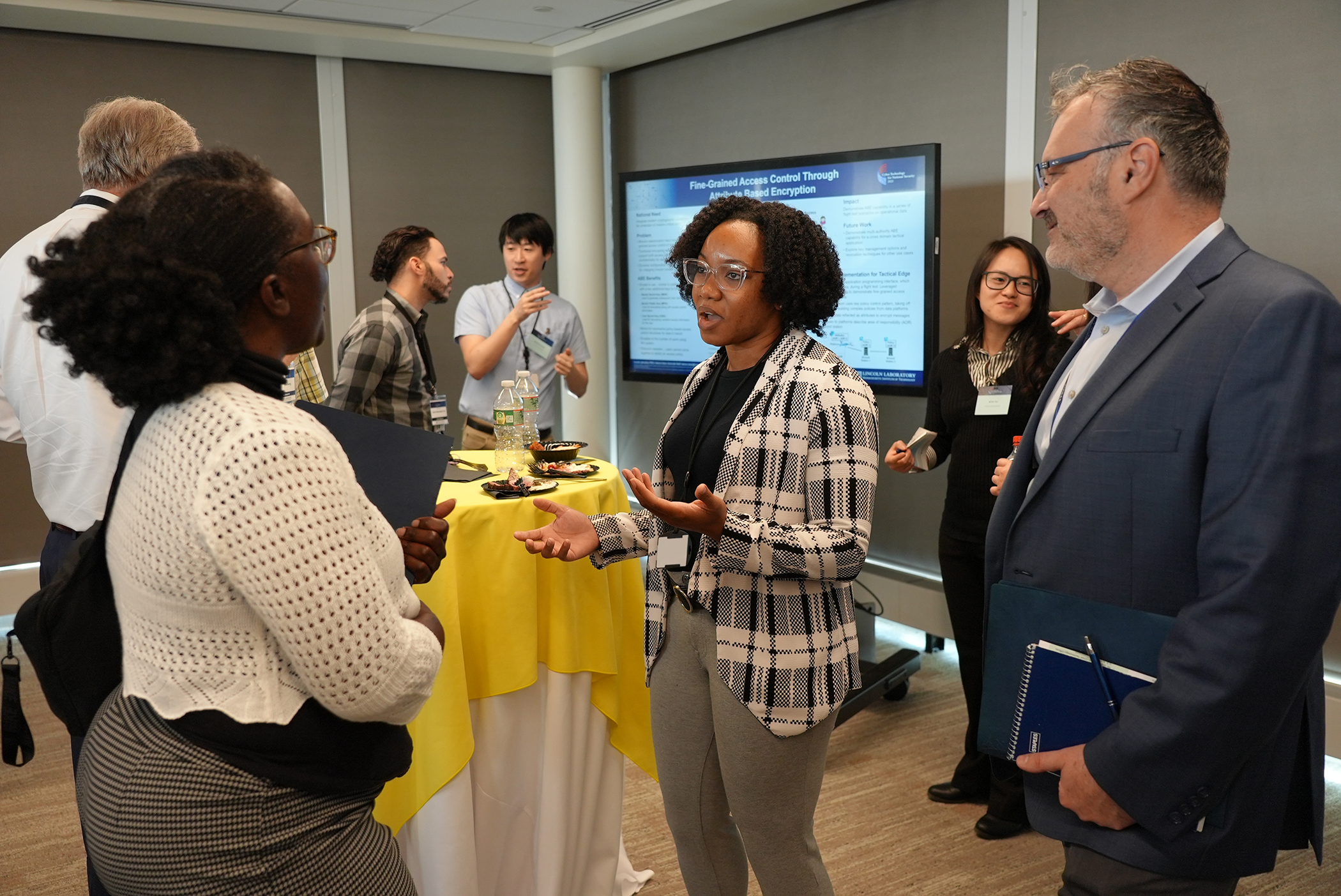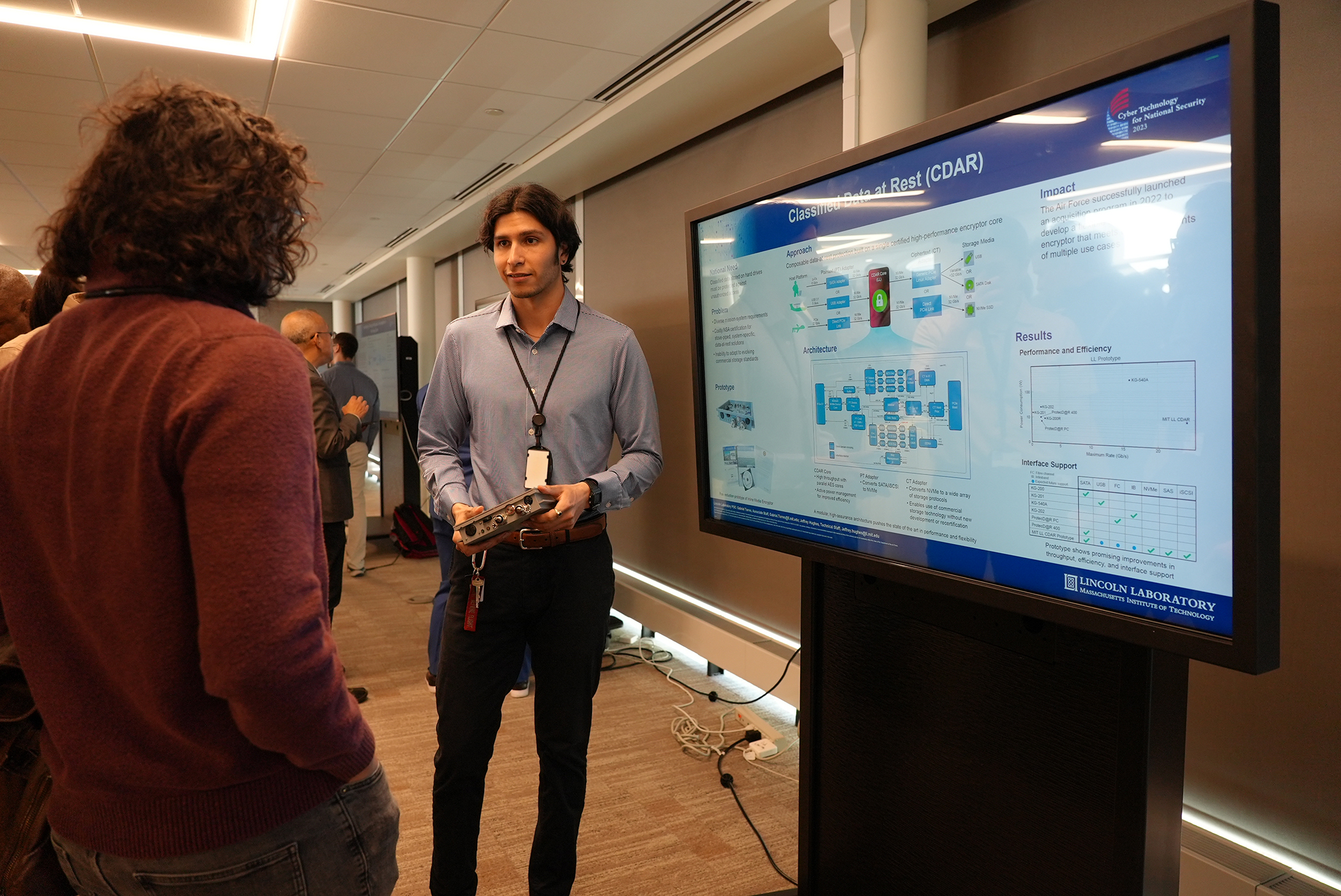Workshop explores cyber technology for national security
Lincoln Laboratory hosted its annual Cyber Technology for National Security (CTNS) workshop from May 31 to June 1, 2023. The event brought together more than 300 attendees for discussions on the latest cybersecurity challenges facing the Department of Defense (DoD). Technical experts presented cutting-edge technologies being developed at the Laboratory to improve cyber resilience and survivability.
"The United States needs to be able to fight through cyberattack and accomplish its mission against determined adversaries. Our CTNS workshop delves into how we can apply technology to making survivable capabilities, hardware, software, and artificial intelligence systems, and use them to enable operations and communications," said Douglas Stetson, CTNS 2023 chair.

The first session of the workshop centered on cyberspace operations. This topic encompasses technology for ensuring the DoD's cyber operations systems effectively perform under its strategic imperative of persistent engagement, which requires cyber operators to proactively seek out and halt cyber threats. A keynote speaker talked about the importance of moving intelligence products to warfighters at the tactical edge, remarking, "We need to be able to get this information to the warfighter quickly."
Technical talks continued on the subject of AI-enhanced technology and resilient AI design. "We need methods to evaluate and protect AI tools in use in the DoD," Laboratory researcher Michael Yee said. "In particular, we need to train on perturbations that could be operationally relevant." In the context of AI, training on perturbations means introducing small changes to input data, in order to observe how these changes affect a model's predictions. This technique can help developers identify potential vulnerabilities and areas of improvement for the model's performance.
Jason Matterer then presented techniques to improve AI assurance — the ability to verify the trustworthiness of AI systems — for the Intelligence Community. "AI is vulnerable to adversarial attacks, and we need mechanisms to alert us when imagery has been manipulated, either at training or evaluation," he said.
Keynote speakers from the Army shared additional insights from their diverse experiences leading cyber, intelligence, or technology efforts for the U.S. government. Several speakers represented the U.S. Army Cyber Command, including Lieutenant General Maria Barrett, Commanding General; Steven Rehn, Chief Technology Officer; Mark Mollenkopf, Science Advisor; and Colonel Justine Krumm, Director of Intelligence.
Technical talks on the second day revolved around the theme of survivability. In a session about technology for dependable messaging systems, Shamaria Engram discussed her work developing a global humanitarian notification system. The system uses blockchain technology to allow humanitarians and militaries to securely share critical notifications about their activities.

Michael Vai then discussed the Laboratory's role in the DARPA Space-Based Adaptive Communications Node (Space-BACN) program. The goal is to harden intersatellite optical communications terminal designs against potential cyber threats.
On the topic of survivable hardware systems, Brendon Chetwynd presented the Common Evaluation Platform (CEP), an open-source system-on-chip designed to be representative of DoD microelectronics. The Laboratory created CEP to enable industry and academia collaborators to design security mechanisms for the DoD, without needing to risk actual DoD hardware.
In all, more than 20 technologists shared presentations over the two-day agenda. Attendees also networked throughout a poster session and reception. In addition, Laboratory staff offered two short courses on the fundamentals of zero-trust architectures and on dynamic software analysis.
The 2024 CTNS workshop will be held from May 29 to 30. For registration information and the full agenda, contact [email protected].